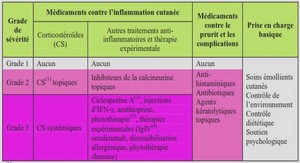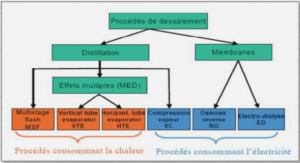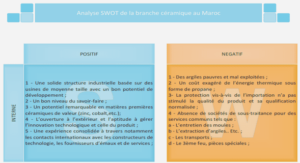English as an International
Language (EIL) British colonialism spread the English language around the world as it was imposed on the non-English speakers in these colonies, English started to become increasingly influential on the world-scene. The US’s powerful political, military and economic position in the second half of the twentieth century meant that English became the main language of communication in many organizations as NATO (North Atlantic Treaty Organisation) and IMF (International Monetary Fund). The following facts from the British Council website reveal the current widespread use of English as a first language by around 375 million. Around 750 million people are believed to speak English as a foreign language. English is the most widely used language all over the world. More than half of the world’s books and three quarters of international mail are in English. English is becoming the essential tool for all activities all over the world. It dominates in all the different fields. English is the language of diplomacy and international communications, business, tourism, education, science, computer technology, media and internet. In fact; English language dominates the web, 70 percent of all information stored is in English.
English is the language of business and government and the language of maritime communication and international traffic control and this is due to globalization. There are many reasons for which international English has become so important in the 21st century. The most important one is1 globalization and2 outsourcing. In fact; according to some experts, faster economic globalization is going hand in hand with the growing use of English. Since many of the world’s most powerful corporations are based in countries such as the United States and Great Britain, there is a high demand for people who can speak English in foreign countries. The entire world has witnessed the importance of the English language since the end of the Second World War; English language has become the essential means for international communication and business. English language is the most popular language. It has replaced French in the world of diplomacy and German in the field of science. It is the dominant language of medicine, electronics and space technology. It is the language of international business and advertising of radio, television and film. Anyone who wants to become literate has to know the English language. English language is the tongue that Japanese businessmen use to negotiate a deal with Kuwaitis.
Even songs in English sound better. English language is increasingly becoming a requirement for job promotion and higher salaries. In fact; English-speaking secretaries in some countries can double their wages. English is not only simply valuable but an absolute necessity as well. Almost all those who are learning English, it is because they need it and not because they like it. That is why teaching English as a second language has become a multimillion-dollar business all over the world. It has become the most profitable business next to drug trafficking. According to British Council, Every year more and more business people turn to the services of Commercial Language Training (CLT) as they recognize the benefits of learning to speak the language of their customers, colleagues and suppliers in order to meet the varied and changing needs of customers through the world. English is the second most widespread language in the world. In fact; over 400 million people use English as a mother tongue and is spoken as a second language by around 375 million people and over 700million people speak English as a foreign language. The English language is the richest in terms of vocabulary, it is the main language used throughout the world. On the internet 88 percent of information stored in the world’s computers is in English. English is the official language of diplomacy, navigation and aviation. CBS .NBC. ABC. BBC. And CBC, the largest broadcasting companies in the world, transmits in English and reaches millions of people all over the world.
The Role of Business in Global Governance for Development
There is growing recognition of the increasingly significant and influential role played by business in global governance. A business influence the policies of international institutions and agreements collaborate with states through public, private partnerships and create develops and adopts commitments and policies that promote sustainable development through corporate social responsibility measures and transnational standard setting process. Multinational companies and corporations which were restricted to commercial activities are increasingly influencing political decisions. Business will consider how the nature of power and authority in the international system is changing with globalization and new forms of public private institutions across national boundaries are giving rise to new forms of global governance. It is absolutely necessary to have people who had special trainings in English during their studies so as to be able to act in real situations such as in business negotiations. For this there, there are so many private commercial schools which programmers are concerned with ESP. The objective is to have responsible capable of negotiating or communicating with foreigners. While negotiating, they should avoid conflicts with the partners; whereas, there are attitudes to adopt such as communication, collaborations and cooperation. Among the main requirements of a successful negotiation are: creativity and coherence.
Yet, to accept the other’s opinions especially when the partners are of different social milieu and have different cultures is not always acceptable. This led us to the necessity of teaching ESP in all departments of the university. ESP is driven by specific learning needs in English language. The learner’s needs, necessities and lacks are the main corpus of the appropriate syllabus which is related to real life situations. It is concerned with identifying general and specific language needs that can be addressed in developing goals, objectives and content in language programmers. An ESP course is purposeful and is aimed at the successful performance of occupational or educational roles. It has become an obligation to have competent people in enterprises. The enterprise is interested in the quality that is people who are able to make profit; however, the university’s objectives are to provide the learners with knowledge. Therefore; there should be cooperation between the university and the enterprise. The link between the university and the enterprise is necessary. The enterprise needs the university’s help in order to overcome certain problems. The university has got many competences who can solve all the problems that face the employees in the enterprise for they can master the language which is an obstacle for many responsible or employees in different companies.
The Communicative Approach
The communicative approach is the product of a long reflexion of linguists and educators who had grown dissatisfied with the other approaches for students did not know how to communicate using appropriate social language, gestures or expressions. They were not able to communicate in the culture of the target language. Allen and Widdowson (1991) state: “There is a need for a new approach to language teaching which will shift the focus of attention from the grammatical to the communicative properties of language, in order to show the student how the language system is used to express scientific facts and concepts.” (Allen and Widdowson, 1991:123) Communicative language teaching makes use of real life situations that necessitate communication. A realistic situational context and a real practical use, provide learners with the language needed in every day situation. Students do not only learn the linguistic structure and grammar rules, they have to learn also how to use the language properly. The communicative approach can leave students in suspense Class exercises, which will vary according to the students’ reactions and responses; it emphasizes the communicative activities that involve the real use of language in daily life situations. Students’ motivation to learn comes from the desire to communicate in meaningful ways about topics that interest them. Therefore; using the communicative approach in the classroom makes learners become active participants.
This approach comes up with activities that would promote self-training and interaction of the group in authentic situations. The learner is active, responsible and autonomous in using the target language in situations similar to those he may be faced with in real life. It is a fact that structures and vocabulary are important to learn a language but it is more useful to speak fluently and not correctly than to know grammar without being able to express oneself. Therefore; the communicative approach values the function of language rather than its form. That is what is language used for rather than correct grammatical and phonological structures. As far as real-life communication is concerned, learners are supposed to reach a certain degree of negotiating meaning and this can be done through some communicative activities such as role plays, topic discussion, and problem-solving and information-gap. The Communicative approach emphasizes the communicative competence in language learning. The aim is not to have knowledge of grammatical rules but more concerned to know when, where and to whom is this language used in a speech community ,yet this does not mean that the grammar and lexis are neglected.
Abstract |





